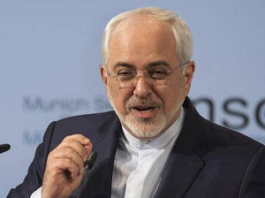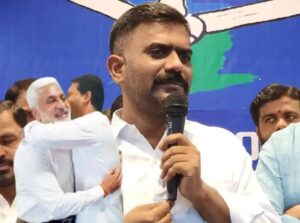
Iran’s foreign minister said the government has received “contradictory signals” from the Trump administration and doesn’t know how to interpret them, but he held open the possibility of talks and improved relations with the United States.
In a wide-ranging session at the Council on Foreign Relations, Mohammad Javad Zarif said he hasn’t communicated with Secretary of State Rex Tillerson. But he said “it doesn’t mean that there can’t be [communication], because the possibilities for engagement with regard to the nuclear deal has always been open.”
But Mr. Zarif said Iran and Saudi Arabia can and should work together to end the conflicts in Syria and Yemen, where they support opposing sides. “We don’t need to fight to exclude each other from the scene in the Middle East,” he said, “because in the end neither will be able to exclude the other.” He added that “extremist forces are as much a threat against us, but even more against them.”
Mr. Zarif is in the United States to speak on Tuesday at a high-level meeting assessing progress toward meeting U.N. goals for 2030 to combat poverty, achieve gender equality, promote economic development and good governance, and preserve the environment.
Mr. Zarif said the International Atomic Energy Agency, “which is hardly a sympathizer for Iran,” has verified its compliance with the agreement.
But unfortunately, he said, the U.S. has not complied, and the six parties to the agreement will be meeting in Vienna on Friday to examine Iran’s complaints about the U.S. failure to carry out its obligations.
The key issue with the United States, he said, is over sanctions against Iran that the agreement requires to be lifted and the sanctions that remain on Iran over human rights, terrorism and other issues.
Mr. Zarif said that for the United States “it’s more important to maintain the sanctions that remain” on Iran “rather than remove the sanctions that have been lifted.”
As a result, he said, the Office of Foreign Asset Control “has been reluctant to provide straight-forward answers to those who want to do business with Iran because it was worried that a straight-forward answer would undermine the sanctions” that haven’t been lifted.
Mr. Zarif said this “creates the impression in Iran that the United States hostility toward Iran will never end.”
But he left open the possibility of changing that perception, saying- “I think that can be remedied.”
Responding to a question about whether Iran has received any signals from the Trump administration, positive or negative, Mr. Zarif said- “We receive contradictory signals. So we don’t know which one to interpret in what way.”
“But it’s very clear that Iran is serious about the nuclear deal and we believe that the nuclear deal can lay the foundation, not the ceiling,” he stressed.
Mr. Zarif said that under the nuclear deal, Iran is committed never to produce nuclear weapons and to have the IAEA impose “the most stringent control measures.” He also cited Iran’s vote on July 7 in favor of the first-ever U.N. treaty to ban nuclear weapons, which was approved by 122 countries.
Asked about Americans in detention in Iran, including a Chinese-American graduate student at Princeton recently sentenced to 10 years in prison for allegedly “infiltrating” the country and sending confidential material abroad, Mr. Zarif stressed the independence of his country’s judiciary.
But he added- “As foreign minister, I always try on humanitarian grounds to help.”
Recent Random Post:
















